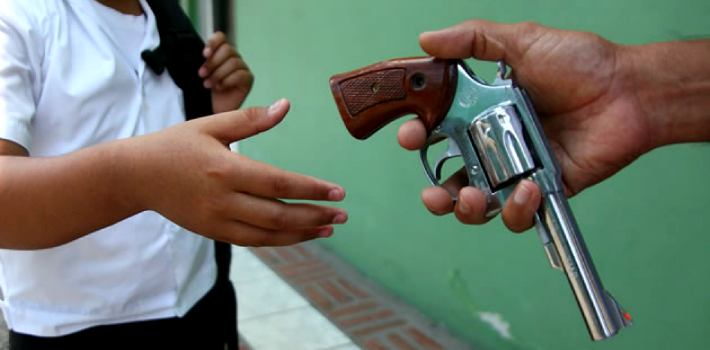
EspañolHonduras is currently fighting against one of the greatest risks to its economy and security: extortion as conducted by the local gangs, or maras, as they are known regionally.
Honduran gang members are mostly young adults who have grown up on the outskirts of the country’s largest cities, such as Tegucigalpa, the capital, San Pedro Sula, and La Ceiba.
Their modus operandi has evolved over time. During the 1990s, they displayed their flashy clothes and gang tattoos, which distinguished them from the rest of the citizens. But this changed when former President Ricardo Maduro (2002-2005) promoted a controversial anti-mara law.
Gang members set aside their traditional clothing and tattoos, and professionalized their organization’s structure. Their criminal activities have become increasingly sophisticated. These are now complex criminal groups which fund their operations through extortion.
Children of Blackmail
Anti-mara legislation toughened sentences for blackmailing, imposing 50 years in prison as the maximum penalty. Since prosecutors can’t accuse underage offenders of felonies, gangs began to send children between 12 and 17 years of age to collect extortion payments and negotiate ransom with shopkeepers and drivers of public transport, a BBC report explains.
So far in 2015, some 355 people have been detained and charged with blackmail, according to the National Anti-Blackmail Force. Of those detained, 112 are underage. Instead of going to prison, they are sent to juvenile detention centers, which lack strong security and social-rehabilitation programs. This makes it easy for them to escape and return to their criminal activities.
[adrotate group=”8″]
Honduran gangs typically offer children a 10 percent cut of the money they obtain. Gangs also offer youths physical protection and drugs. Some join simply to belong to the criminal structures, which provide a sense of belonging to many of the 800,000 teenagers who neither work nor study, according to the National Statistics Institute.
Honduras’ intelligence agencies have strengthened their operations and launched prevention campaigns in educational centers. They hope to keep adolescents away from ordinary and organized crime.
“They Are Bait”
Gang violence heavily afflicts the Planeta sector in San Pedro Sula, Honduras. A Planeta resident, who asked to remain anonymous for safety reasons, told the PanAm Post that the share of children joining gangs has increased by 40 to 50 percent. Criminal groups, meanwhile, use children as bait.
“With the money they get [through blackmail], they make ends meet,” she says. “Gang members give them clothes and food. And they don’t steal; they take care of the community. They are constantly carrying out surveillance and are on the lookout for anything strange.”
When asked how the community deals with blackmail, the resident explains that shopkeepers are given a fixed day and time to pay the “protection fee,” and a child is designated to collect the payment.
She thinks that gangs use the children as “bait.” Once they are caught by the police, no one will show up to defend them. Many of these kids attend school and have a “normal” life, and their criminal activities earn them respect and spark fear among their peers.
It’s hard to launch a business and be successful in this area, as the daily earnings can equal the blackmail fee, says the resident. This situation has pushed businesses away.
Education as Prevention
The Suncery neighborhood in San Pedro Sula is infamously known for its high levels of drug use. For the last 24 years, the Catholic Church has run the program Friends for Ever (APS), which takes care of the youth in the area, keeping them away from drugs, prostitution, and crime.
The program reaches some 262 children who take part in different activities within an environment deemed proper for their integral development. The program aims to support children’s education, providing them with an alternative educational system if a child is prone to conflict.
 Versión Español
Versión Español












